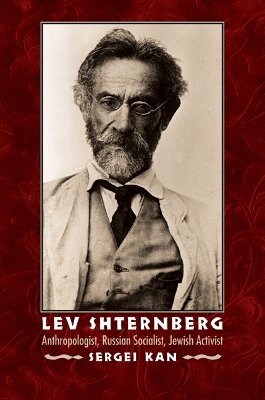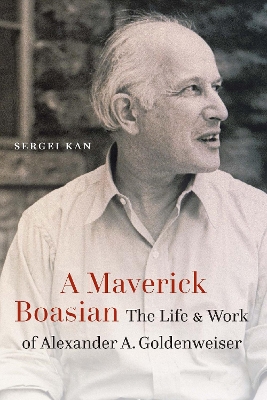Critical Studies in the History of Anthropology
2 total works
This intellectual biography of Lev Shternberg (1861–1927) illuminates the development of professional anthropology in late imperial and early Soviet Russia. Shortly after the formation of the Soviet Union the government initiated a detailed ethnographic survey of the country’s peoples. Lev Shternberg, who as a political exile during the late tsarist period had conducted ethnographic research in northeastern Siberia, was one of the anthropologists who directed this survey and consequently played a major role in influencing the professionalization of anthropology in the Soviet Union.
But Shternberg was much more than a government anthropologist. Under the new regime he continued his work as the senior curator of the St. Petersburg Museum of Anthropology and Ethnography, which began in the early 1900s. In the last decade of his life Shternberg also played a leading role in establishing a new Soviet school of cultural anthropology and in training a cohort of professional anthropologists. True to the ideals of his youth, he also continued an active involvement in the intellectual life of the Jewish community, even though the new regime was making it increasingly difficult. This in-depth biography explores the scholarly and political aspects of Shternberg’s life and how they influenced each other. It also places his career in both national and international perspectives, showing the context in which he lived and worked and revealing the important developments in Russian anthropology during these tumultuous years.
But Shternberg was much more than a government anthropologist. Under the new regime he continued his work as the senior curator of the St. Petersburg Museum of Anthropology and Ethnography, which began in the early 1900s. In the last decade of his life Shternberg also played a leading role in establishing a new Soviet school of cultural anthropology and in training a cohort of professional anthropologists. True to the ideals of his youth, he also continued an active involvement in the intellectual life of the Jewish community, even though the new regime was making it increasingly difficult. This in-depth biography explores the scholarly and political aspects of Shternberg’s life and how they influenced each other. It also places his career in both national and international perspectives, showing the context in which he lived and worked and revealing the important developments in Russian anthropology during these tumultuous years.
A Maverick Boasian explores the often contradictory life of Alexander Goldenweiser (1880–1940), a scholar considered by his contemporaries to be Franz Boas’s most brilliant and most favored student. The story of his life and scholarship is complex and exciting as well as frustrating. Although Goldenweiser came to the United States from Russia as a young man, he spent the next forty years thinking of himself as a European intellectual who never felt entirely at home. A talented ethnographer, he developed excellent rapport with his Native American consultants but cut short his fieldwork due to lack of funds. An individualist and an anarchist in politics, he deeply resented having to compromise any of his ideas and freedoms for the sake of professional success. A charming man, he risked his career and family life to satisfy immediate needs and wants.
A number of his books and papers on the relationship between anthropology and other social sciences helped foster an important interdisciplinary conversation that continued for decades after his death. For the first time, Sergei Kan brings together and examines all of Goldenweiser’s published scholarly works, archival records, personal correspondences, nonacademic publications, and living memories from several of Goldenweiser’s descendants.
Goldenweiser attracted attention for his unique progressive views on such issues as race, antisemitism, immigration, education, pacifism, gender, and individual rights. His was a major voice in a chorus of progressive Boasians who applied the insights of their discipline to a variety of questions on the American public’s mind. Many of the battles he fought are still with us today.
A number of his books and papers on the relationship between anthropology and other social sciences helped foster an important interdisciplinary conversation that continued for decades after his death. For the first time, Sergei Kan brings together and examines all of Goldenweiser’s published scholarly works, archival records, personal correspondences, nonacademic publications, and living memories from several of Goldenweiser’s descendants.
Goldenweiser attracted attention for his unique progressive views on such issues as race, antisemitism, immigration, education, pacifism, gender, and individual rights. His was a major voice in a chorus of progressive Boasians who applied the insights of their discipline to a variety of questions on the American public’s mind. Many of the battles he fought are still with us today.

